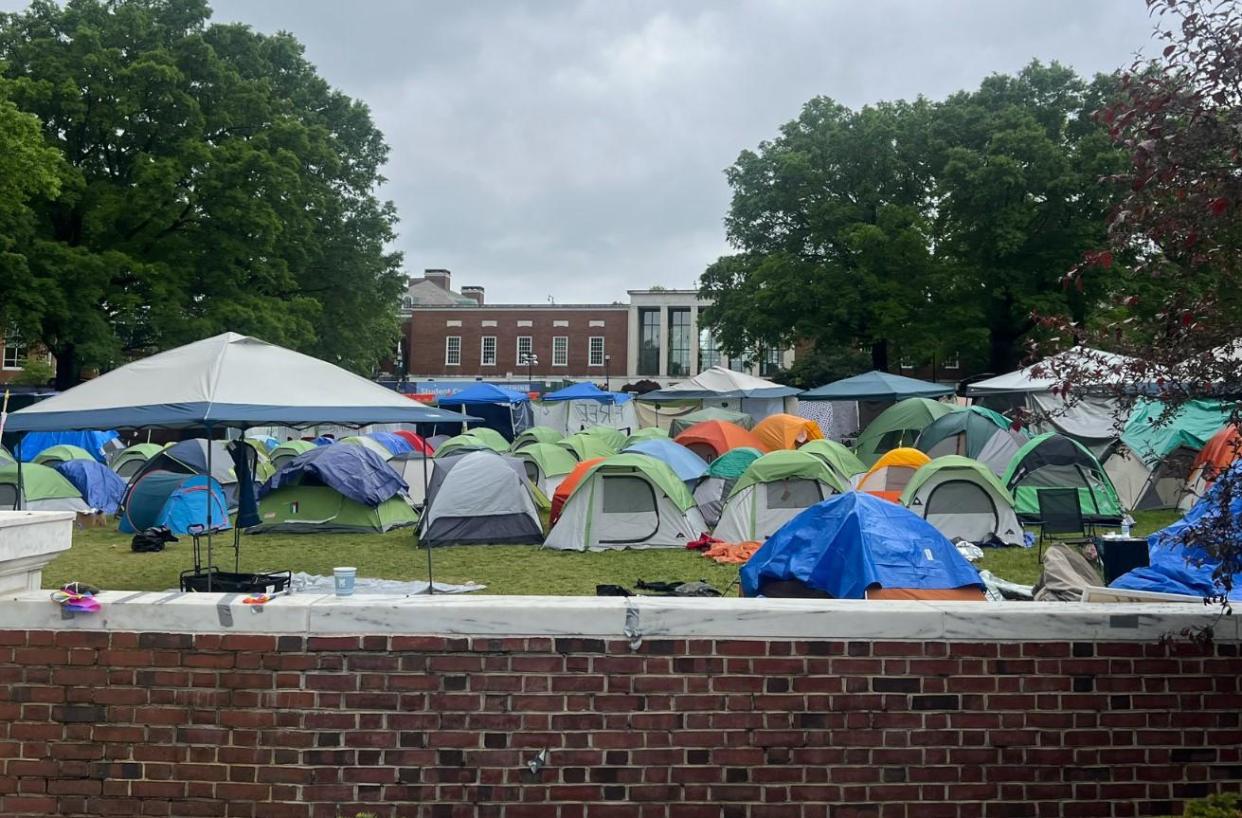Johns Hopkins University and student protesters agree to end encampment

BALTIMORE-- After 14 days, Johns Hopkins University and student protesters have reached an agreement on the dismantling of the protest-related encampment on the Beach at the Homewood campus.
According to a release by the university, protesters have agreed to take down the encampment Sunday, and not to restart it, effective immediately. Protesters who are not affiliated with the university taking part in the encampment have been instructed to vacate the campus.
Since the protest began April 29, the university has sought a peaceful resolution to the presence of the encampment, which violates university policies designed to protect freedom of expression and ensure campus safety.
Within the agreement, the university promised to review the protesters' key question of divestment, using the university's existing process. JHU has also committed to conclude student conduct proceedings arising out of the encampment, if protesters agreed to not to engage in further disruptions of university activities, including Commencement.
"Conduct proceedings will continue for any allegations involving violence, assault, property damage, discrimination, harassment, intimidation, or threats" according to the release.
"Bringing this situation to a peaceful resolution has been an urgent priority for us since it began almost two weeks ago. Hopkins is deeply committed to free expression, but it has to be done safely and in a manner that respects university rules and norms. We are grateful to the many members of our community–faculty, staff, and students–who helped us navigate this moment," said JHU President Ron Daniels. "This is a truly difficult time in our world and at our university, with the anguish of the ongoing conflict and human tragedy in Israel and Gaza. It is my fervent hope that at Hopkins, we can together continue our focus on the important work of a university – to engage in dialogue and learning with one another regarding challenging and complex issues such as these."
On Sunday, demonstrators gathered on the Beach, where the encampment, once stood to make their voices heard. The group marched through campus, passing Gilman Hall, the president's residence, and the Blue Jay Statue. Students can paint on this statue freely, so demonstrators added the Palestinian flag and their message to the university.
"Our message is simple: Palestinians are humans," one demonstrator said. "The agreement that we reached by no means is considered a victory, but it was a first step."
In the agreement, the university says it will accelerate a review of its investments in the Israeli conflict.
This is progress according to demonstrators – who called for a review of university finances by the Hopkins Public Interest Investment Advisory Committee.
The university says amnesty was also granted to students who were going through conduct proceedings because of the encampments. Hopkins President Ron Daniels said in a statement: "The university is committed to holding what will doubtless be a challenging set of conversations around divestment that will require us to engage fully the history and the complexities of the conflict between Israelis, Palestinians, and neighboring states."
"Just because the tents are down does not mean the fight is over. Let me tell you we will come back. And we will continue to organize until we see a free Palestine," a demonstrator said outside of Daniels' on campus home.
According to the university's statement, the agreement also says that protestors cannot engage in further disruptions of university activities, including commencement, nor reestablish an encampment. Graduation is scheduled for May 25, just ten days after the encampment was taken down.
Nature: Mustangs in South Dakota
